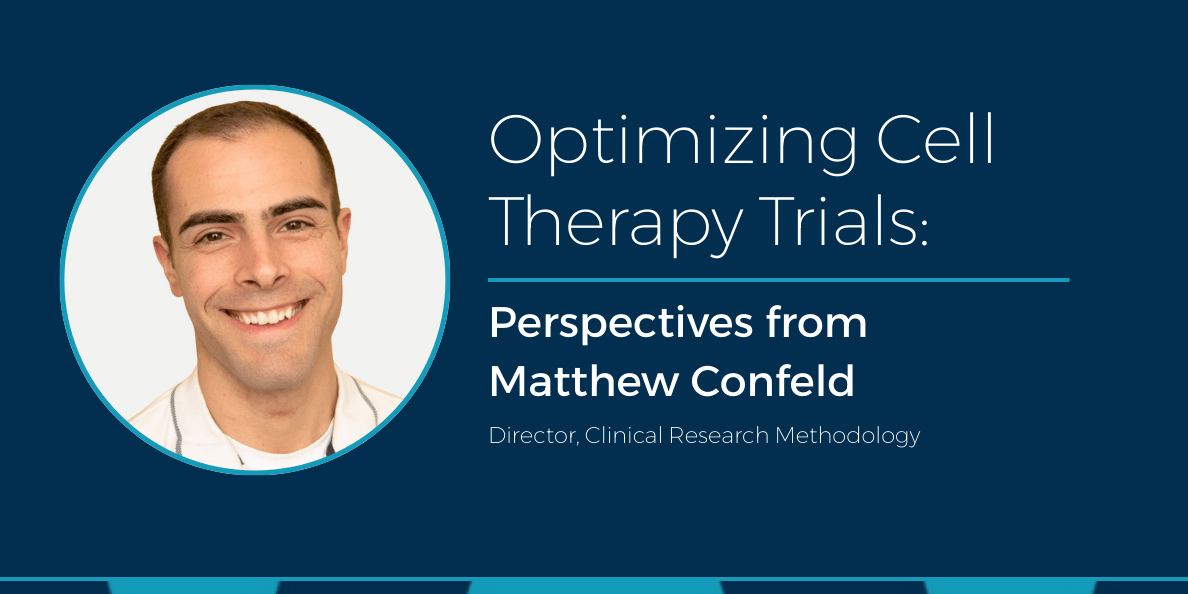
Matthew Confeld, PharmD, PhD, Director, Clinical Research Methodology
In my role specializing in clinical research methodology, I focus on strategies that help accelerate and de-risk the development of innovative therapies. Modern cell therapy trials necessitate flexible study designs that can adapt to emerging data and limit the requirement for additional protocol amendments. Therefore, a multi-disciplinary protocol writing team that incorporates experienced scientists, clinicians and operational team members ensures a study design that is scientifically sound and operationally feasible.
Regulatory meetings offer additional opportunities, particularly for novel targets and modalities, through supportive early engagement meetings such as INTERACT, which can be utilized to fine-tune your preclinical development strategy. Then, through pre-IND and End-of-Phase meetings you can gain alignment on key study parameters and opportunities for accelerated development pathways.
During our webinar, “Optimizing Cell Therapy Trials of Today: Strategies and Tactics,” airing on October 8th at 11:00 a.m. EST, I will provide some context on creating flexible protocols that allow for discovery in development, how to align study procedures with operations and feasibility, and understanding the strategic value of regulatory meetings. Make sure you register today!
Read below to learn what you can expect me to discuss:
Flexible Protocols — Discovery in Development
Flexible protocols are essential in cell therapy trials as they allow for scientific discovery while developing novel therapies. By incorporating adaptive designs, researchers can respond to emerging data, reducing the need for additional protocol amendments. This flexibility fosters a more efficient development process, enabling new therapeutic avenues while maintaining trial integrity. A multi-disciplinary approach to protocol writing, involving experienced scientists, clinicians, and operational team members, ensures that study designs are scientifically sound and operationally feasible.
Study Feasibility & Operational Alignment
Aligning study procedures with operational conduct and feasibility is crucial, particularly in therapeutic areas such as oncology, rare genetic disorders, and autoimmune disorders. Strategies for achieving this alignment include assessing the practicality of study requirements, such as patient recruitment and retention, data collection methods, and site capabilities. By ensuring that study procedures are operationally feasible, researchers can minimize delays, reduce costs, and enhance the overall quality of the trial. This alignment is critical for the successful execution of complex cell therapy trials.
Maximizing the Strategic Value of Regulatory Engagement
Regulatory meetings, before and throughout a trial’s duration, offer a strategic approach to optimizing trial outcomes. Meetings such as INTERACT, pre-IND, and End-of-Phase meetings provide opportunities for early and ongoing engagement with regulatory bodies, facilitating carefully developed strategies that help gain alignment on key study parameters and opportunity for approval. By leveraging these meetings, sponsors can identify potential issues early on, explore possible opportunities for accelerated development pathways, and ensure the trial is well-positioned for success.
Register now for our webinar and hear the full discussion!